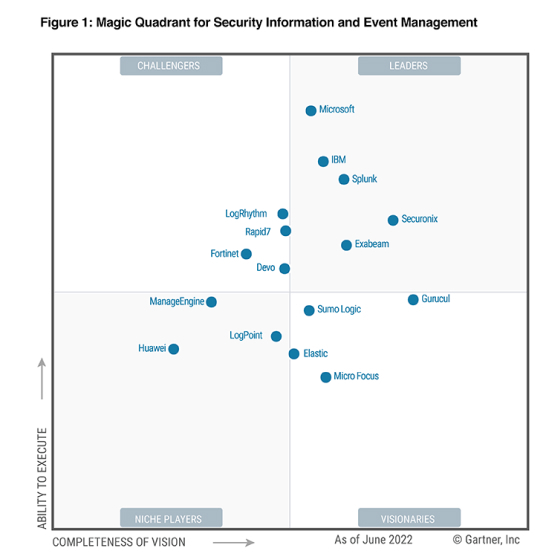
Get the report
More
Get a complete view of your infrastructure. Make smarter decisions, throttle and optimize capacity as needed, reduce unplanned outages and resolve application performance issues before impacting users.





Sumo Logic has over 300 out-of-the-box integrations to monitor and optimize your current infrastructure — on-premises, cloud, hybrid — and future-proof for new technology.
Gain visibility into your databases' health, performance, and behavior with KPIs, such as failed logins, slow queries, connections or deadlocks for technologies like PostgreSQL, MongoDB, Microsoft SQL and more.
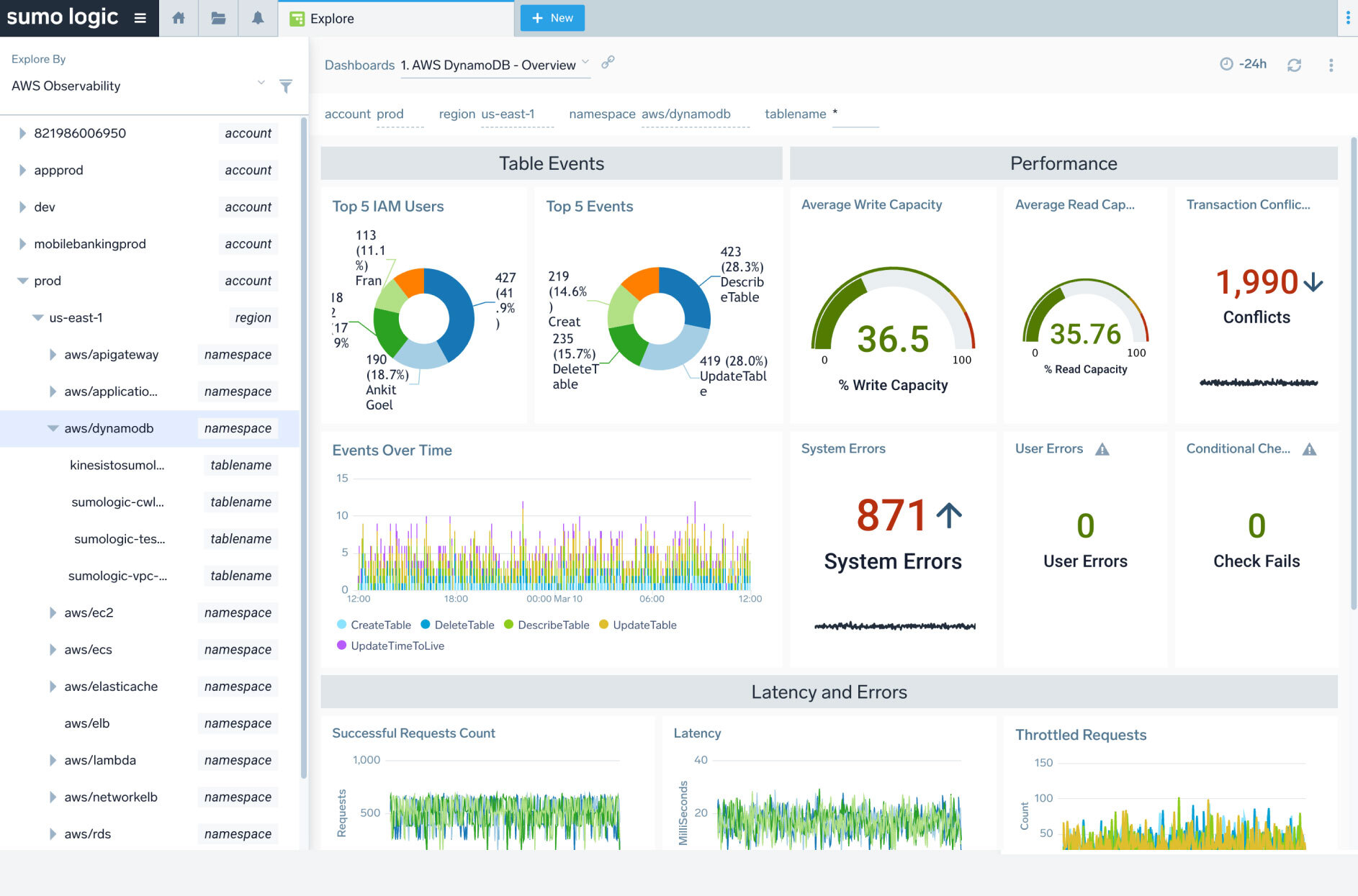
Ensure optimal performance, monitor and manage cost and enforce security for your AWS Lambda functions.
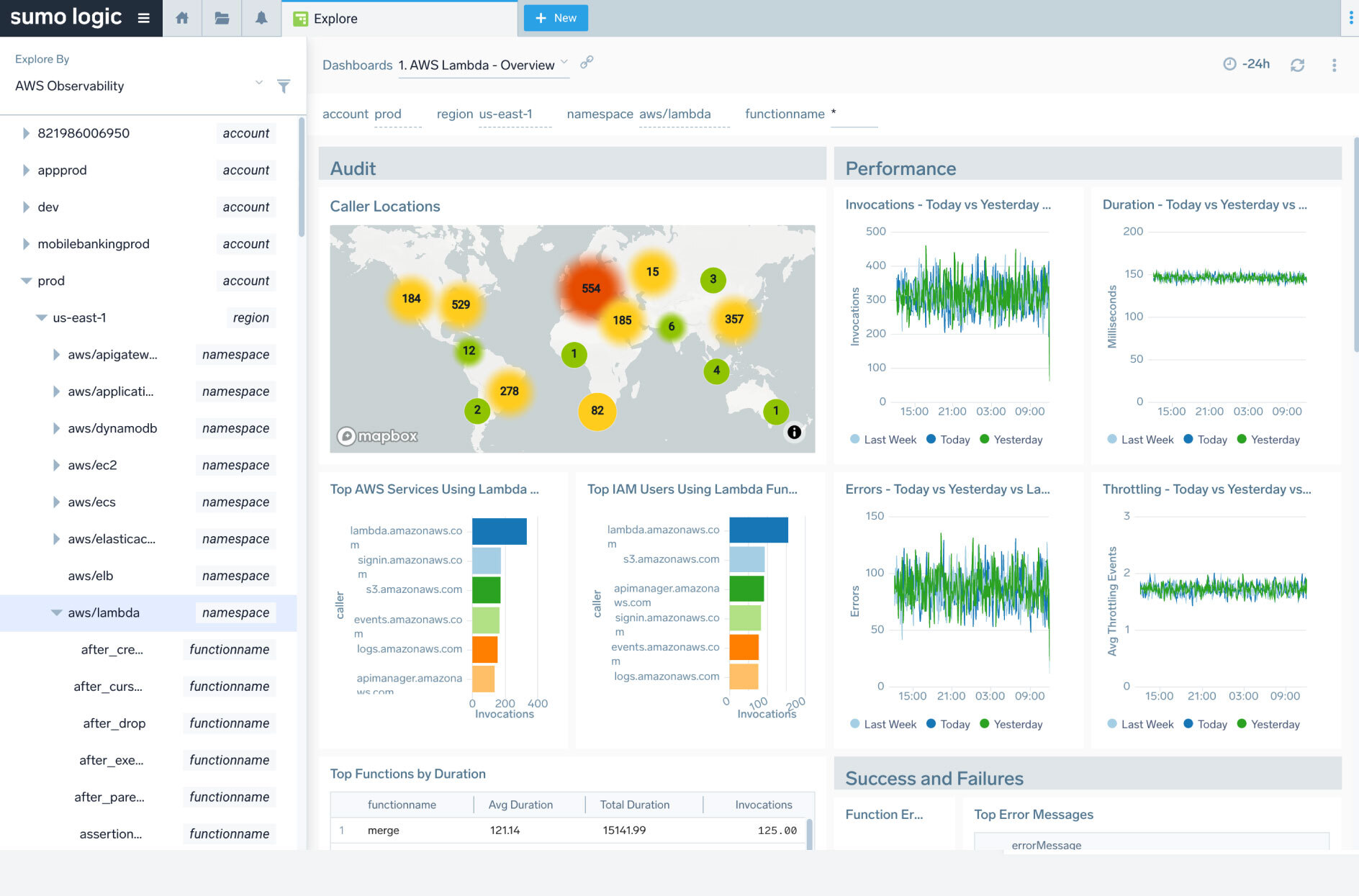
Take advantage of native integrations and built-in server monitoring, diagnostics, troubleshooting and security dashboards with the Sumo Logic Kubernetes App.
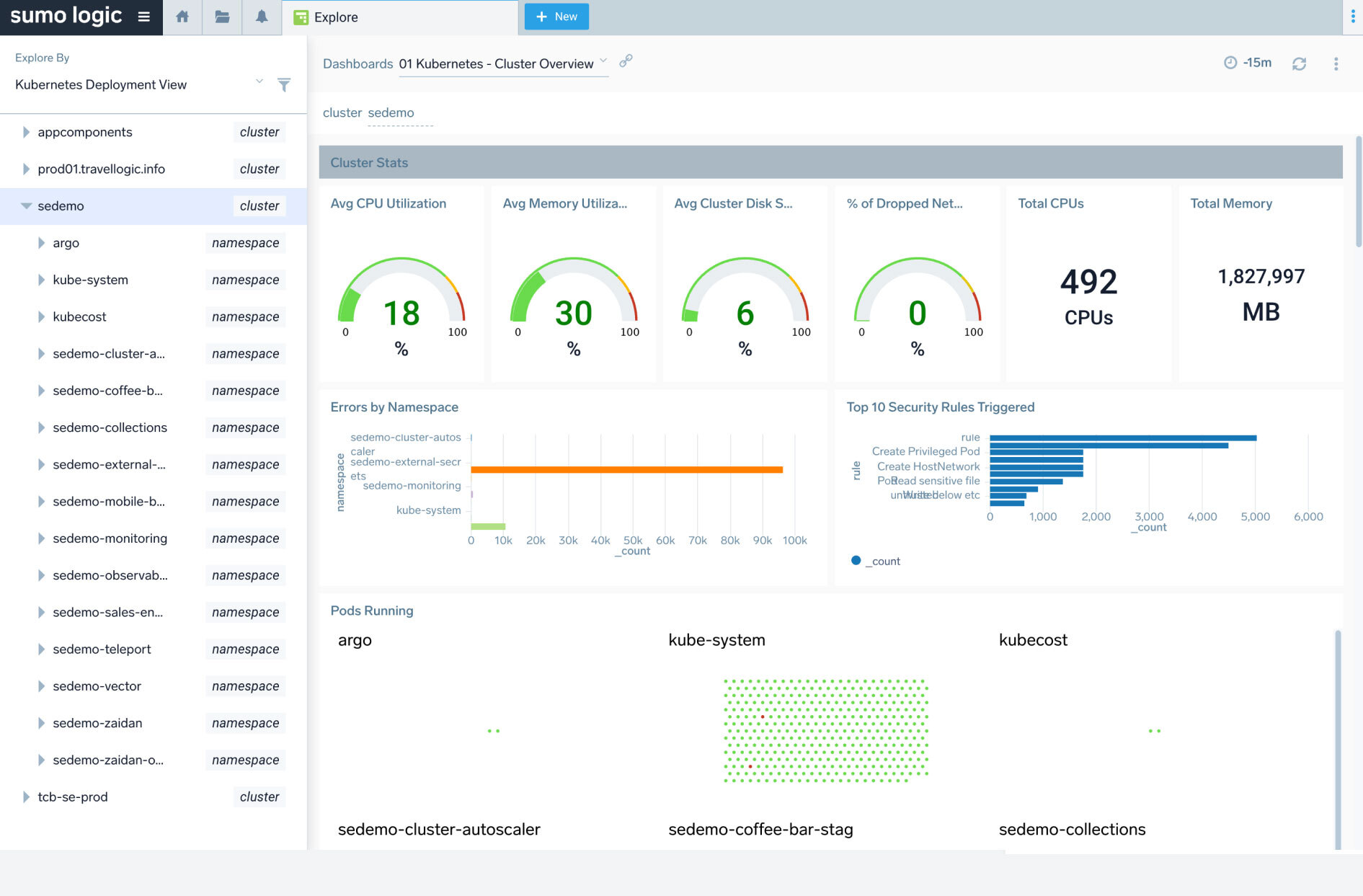
Optimize user experience, your infrastructure and network performance, and gain insight into usage patterns and best practices by leveraging golden-signal benchmarks based on our community data of popular services like Apache, NGINX and Kubernetes.
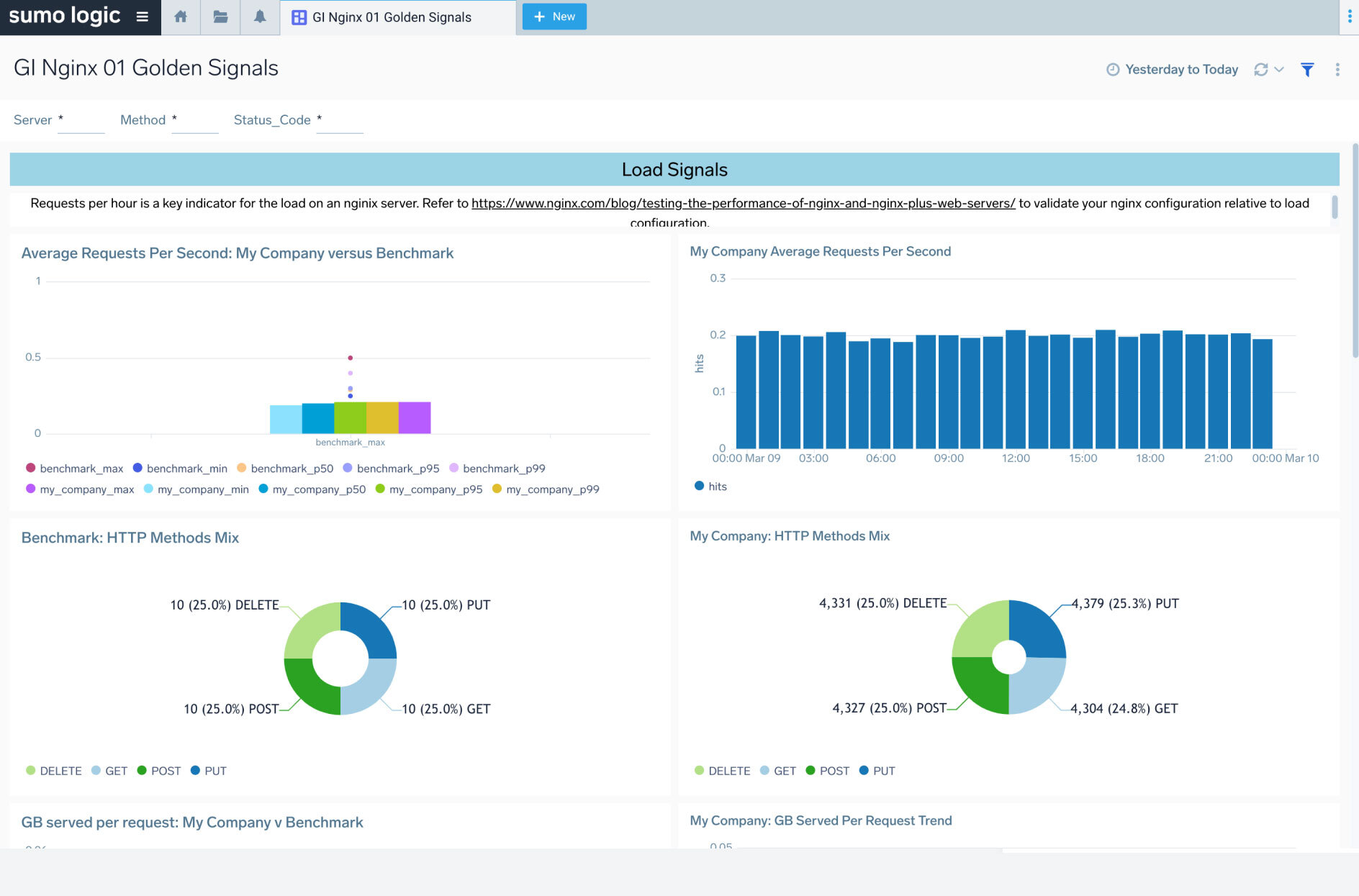
Proactively identify critical cloud application problems by easily correlating performance issues with errors and failures across the infrastructure.
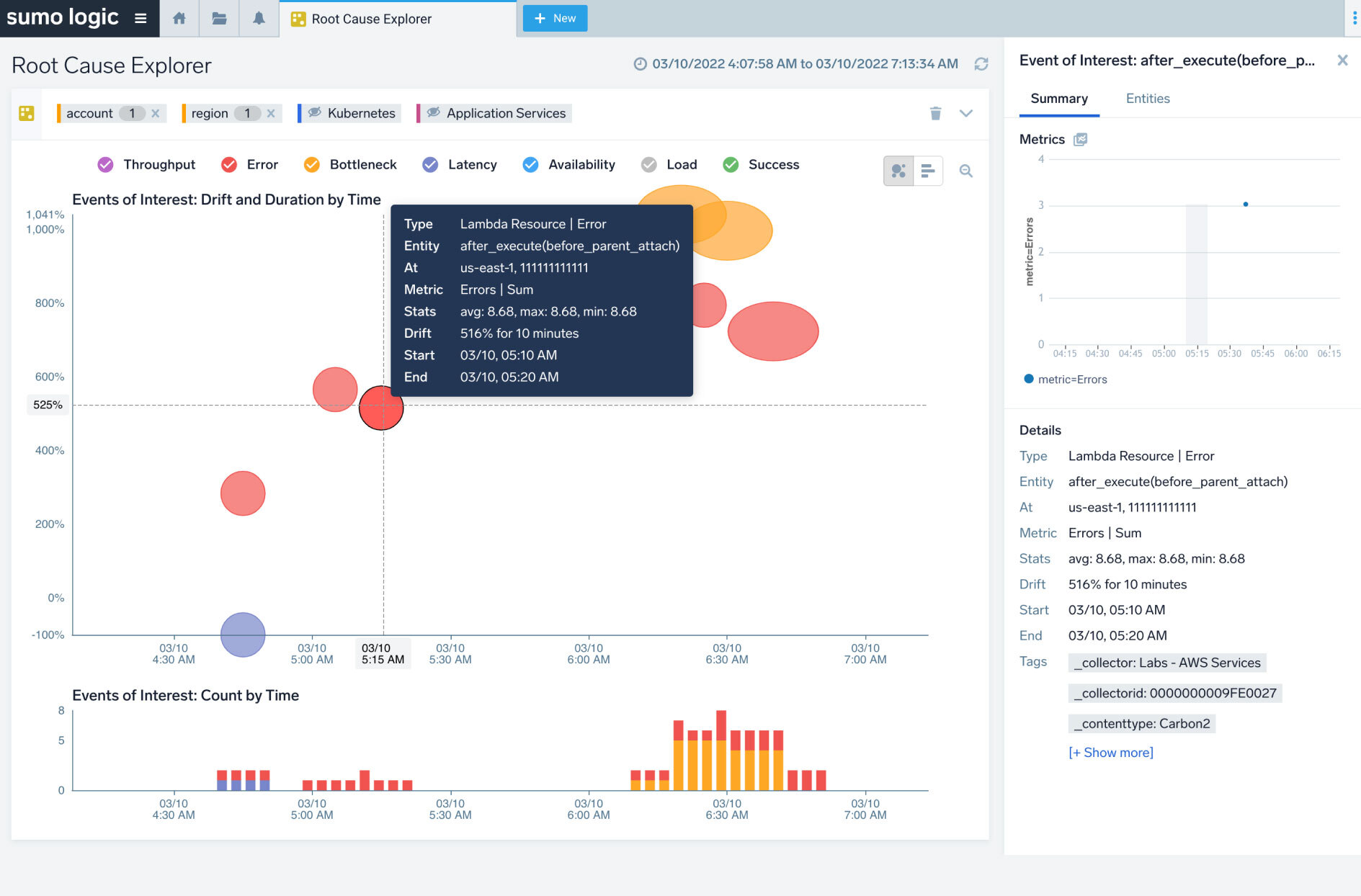
Gain metrics visibility with application and network monitoring to proactively manage your infrastructure.
Consolidate all infrastructure telemetry and take advantage of unified analytics and best-in-class security attestations.
Eliminate blind spots with full support for AWS, Microsoft Azure, and Google Cloud Platform (GCP) apps, services, modern architectures and integrations with your favorite cloud monitoring tools.
Collect all infrastructure metrics, regardless of the number of distinct values in your data sets, to effectively manage your Kubernetes and container environments.
Vastly reduce data management costs by identifying important data to analyze in real-time or just for ad-hoc analysis.
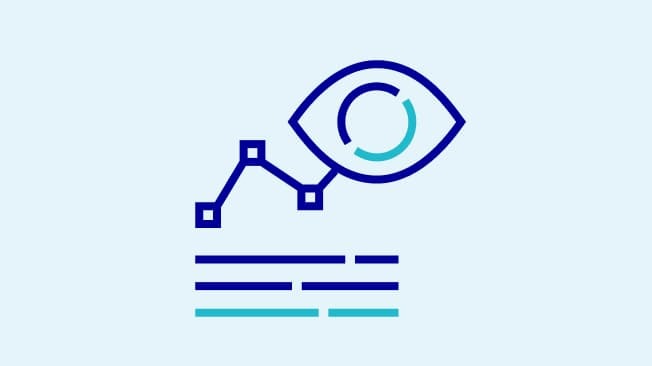

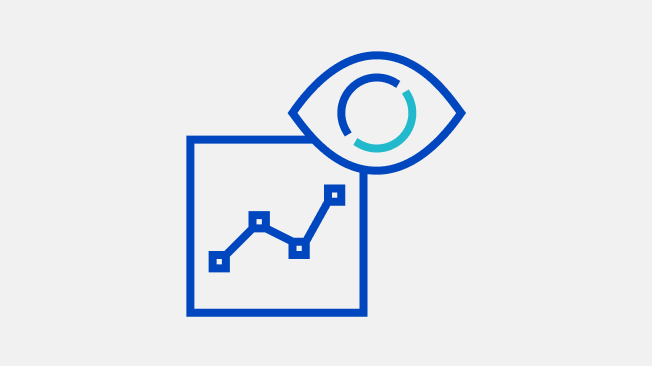
An infrastructure monitoring solution can monitor event logs and system metrics throughout an organization's IT infrastructure. These log files contain information, such as the time and date the event occurred, helping to detect operational issues, capacity problems, identify possible security breaches or malicious attacks and potentially uncover new areas of business opportunity. Both network monitoring and application monitoring are also critical aspects of infrastructure monitoring.
First and foremost, to align with modern architectures, it’s important to have a unified and scalable cloud-native infrastructure monitoring solution. Other key factors include:
Keeps all data safe with best-in-class security certifications and attestations.
Sumo Logic’s full stack observability solution collects telemetry across your tech stack (application, infrastructure, microservices, device, virtual machines, etc.) for complete visibility across your entire application infrastructure - both on-premises and in the cloud.
Sumo Logic’s cloud-native platform aggregates log information across the entire cloud-based application stack to provide relevant real-time insights for users. Sophisticated alerting that uses artificial intelligence efficiently diagnoses operational issues before they become crises.
Sumo Logic scales quickly and easily to handle the workload capacities for your observability and network performance monitoring requirements. It provides low overhead and management with open-source agents to make integrations as seamless as possible.
Sumo Logic’s Data Tiers provide a comprehensive method for all types of data that an organization has, low touch, high touch and everything in between, at an economical price. Data Tiers provide tier-based pricing based on your planned usage of the data you ingest, allowing you to boost capacity when needed.
Sumo Logic’s Service Maps and Dashboards provide an end-to-end approach to monitoring and troubleshooting complex modern applications. You can quickly detect anomalous events, then enable rapid root cause analysis through machine learning-aided technology. Service Maps built from tracing data provide a high-level view of any application environment for a greater understanding of dependencies between your operating system, monitoring system, network devices and monitored microservices. Advanced features like patented LogCompare and outlier detection help with security or compliance use cases.
Sumo Logic's unified platform brings machine learning across all different data domains. Compared to other infrastructure monitoring solutions, it also supports log data with a professional-grade query language and standard security for all users, including encryption-at-rest and security attestations (PCI, HIPAA, FISMA, SOC2, GDPR, etc.) and FedRAMP – at no additional charge.
Hundreds of flexible integrations automatically collect telemetry in one central place to provide visibility across all components and reduce the time spent troubleshooting and fixing performance issues. Sumo Logic breaks down data silos to include logs, metrics and traces for complete visibility into complex software systems. You get the “why” and the “what” to quickly find and address errors, outages and issues, keeping end users happy.
Sumo Logic’s standard and customizable Dashboards allow you to easily monitor and troubleshoot issues and outages through visual representations of data that enable you to quickly identify and resolve key issues without learning a query language. Alert Response automatically compiles alerts so you can quickly identify issues and reduce the time to troubleshoot and remediate them.
Sumo Logic’s cloud-native SaaS platform can be accessed by multiple teams in any location for effective collaboration to find and resolve issues. Sumo’s App Catalog empowers team collaboration through rich content based on the ability to ingest data from various technology components across the organization.
Get the power of end-to-end visibility across your application infrastructure.